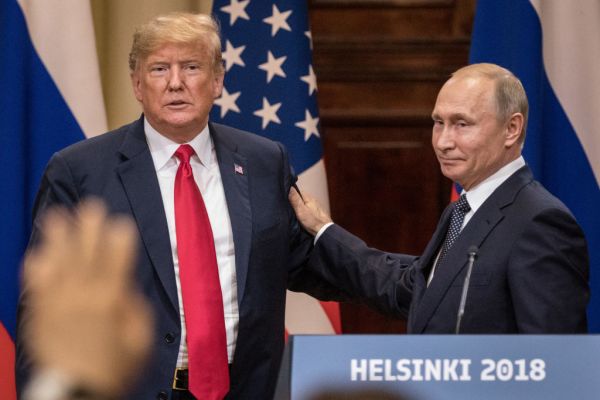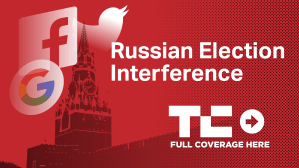Over the course of Monday’s controversial Helsinki summit, Russian President Vladimir Putin pushed an agenda that would ostensibly see the U.S. and Russia working side by side as allies. The two countries make stranger bedfellows than ever as just days prior, Trump’s own Department of Justice indicted 12 Russian intelligence officials for the infamous 2016 Democratic National Committee hack.
Nonetheless, the Russian president revived talks of a joint group between the U.S. and Russia dedicated to cybersecurity matters. For anyone with the security interests of the U.S. at heart, such a proposal, which Trump endorsed in a tweet one year ago, would truly be a worst-case scenario outcome of the puzzlingly cozy relationship between the two world leaders.
“Once again, President Trump mentioned the issue of the so-called interference of Russia [during] the American elections and I had to reiterate things I said several times…,” Putin said in Helsinki.
“Any specific material, if such things arise, we are ready to analyze together. For instance, we can analyze them through the joint working group on cyber security, the establishment of which we discussed during our previous contacts.”
Putin added that Russia favors “continued cooperation in counter-terrorism and maintaining cyber security.”
“The most recent example is their operational cooperation within the recently concluded World Football Cup,” Putin said. “In general, the contacts among the special services should be put to a system-wide basis should be brought to a systemic framework. I reminded President Trump about the suggestion to re-establish the working group on anti-terrorism.”
After a loud bipartisan rebuke followed Trump’s proposal of an “impenetrable [cybersecurity] unit” with Russia last year, the U.S. president walked his comments back a few steps, suggesting that they were hypothetical. Whether it ever materializes or not, the whole idea is a somewhat stunning departure from national security norms and one that would be broadly decried as letting the fox into the henhouse, given that evidence establishing Russia as a cyber adversary of the U.S., both currently and historically, is plentiful.
In 2017, the U.S. intelligence community issued such an assertion in no uncertain terms:
Russian efforts to influence the 2016 US presidential election represent the most recent expression of Moscow’s longstanding desire to undermine the US-led liberal democratic order, but these activities demonstrated a significant escalation in directness, level of activity, and scope of effort compared to previous operations.
The report notes that this information is sourced broadly, stating that “insights into Russian efforts—including specific cyber operations—and Russian views of key US players derive from multiple corroborating sources.”
CrowdStrike, the security firm involved in investigating the 2016 DNC hack, uncontroversially included Russia on a list of “notable nation-state adversaries” of the U.S. alongside China, North Korea and Iran.
Just days ago, U.S. Director of National Intelligence Dan Coats cautioned that “warning lights are blinking red again” when it comes to attacks on federal, state and local U.S. entities. Coats named Russia, China, Iran and North Korea as cyber aggressors against the U.S., adding that “Russia has been the most aggressive foreign actor, no question.”
It’s unclear what, if anything, the U.S. would stand to gain from such an arrangement, though it would stand to lose quite a bit, given the likelihood that Russia’s interest in influencing U.S. elections is ongoing. Putin’s comments in Helsinki indicate the spirit of such an effort lives on, misguided as it may be.

